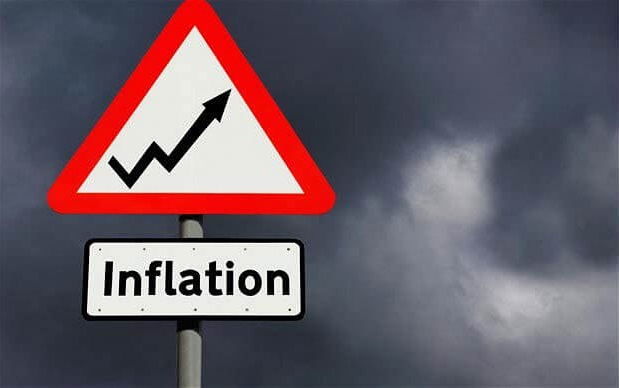Continued closure of the Nigerian land borders may have pushed inflation rate to 11.61% in October 2019 from 11.24 % recorded in September 2019, the highest in 17 months.
The inflation rate measures the annual percentage rise in the cost of living (CPI) and a rise in the inflation rate means prices are rising at a faster rate.
Advertisement
The National Bureau of Statistics( NBS), in its “CPI and Inflation Report’’ for October 2019 released in Abuja on Monday stated that the figure was 0.36% points higher than the rate recorded in September of the same year.
The rise is the highest inflation figure in 17 months since May 2018 when the country was recovering from the recession and had inflation at the same rate.
According to the report, the food index also increased to 14.09 % in October compared to 13.51% in September.
The lead adviser of Money Africa Oluwatosin O Togunde in an email exchange with our correspondent said the increase in inflation is reflective of two key factors, the ongoing border closure ordered by President Muhammadu Buhari which has made it difficult for products to be exported and imported into the country through the land borders and the festive season.
Advertisement
She further said the increase is key because October tends to have a drop in inflation, due to the harvest season.
Highlighting how the sharp increase in inflation will affect Nigerians Togunde said Nigerians will have to cut down on other items.” the average Nigerian tends to spend over 50% of their income on food.
How Increase In Inflation May Affect you.
1. Spending Rush- There will be a rise in the frequency of purchases as people will want to buy things now than wait till later. The notion that things will get more expensive, especially this festive season will drive the desire to buy more now, a panic- buying sort of situation.
2. This could favour some business owners in the agric space. For others generally, a spike in price would lead to lower demand and thus lower revenue.
Advertisement
3. If the inflation rate keeps rising, Central Bank Of Nigeria(CBN) might be forced to increase the Monetary Policy Rate.
This would mean increased cost of lending by the banks.
4. An increase in inflation however could lead to the apex bank increasing the interest rate on treasury Bill’s, as they are currently below inflation. That’s more money for investors in these securities, as well as banks and other players.



